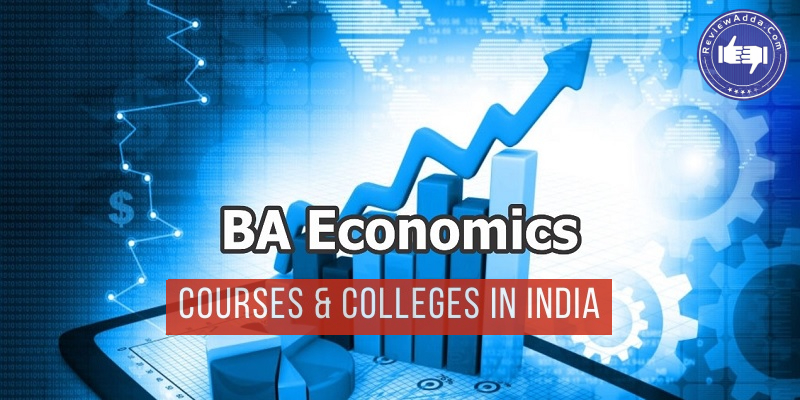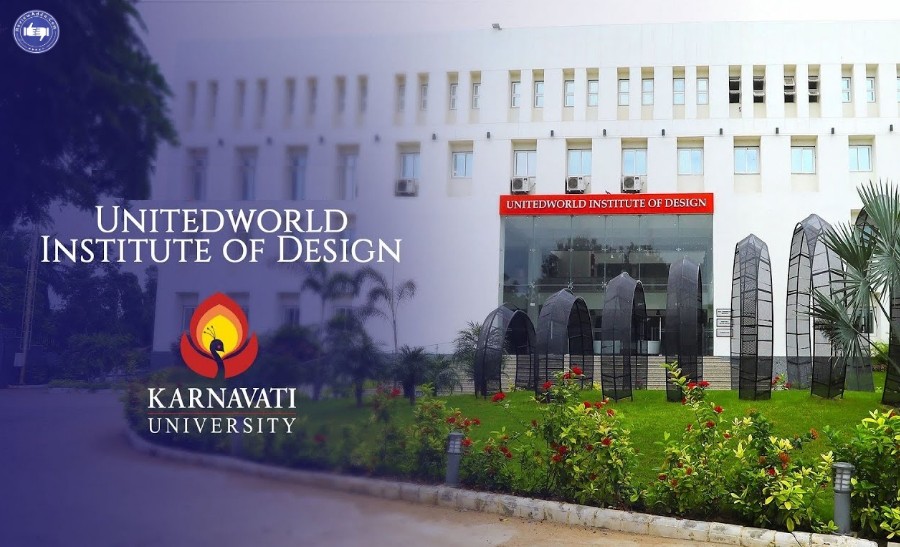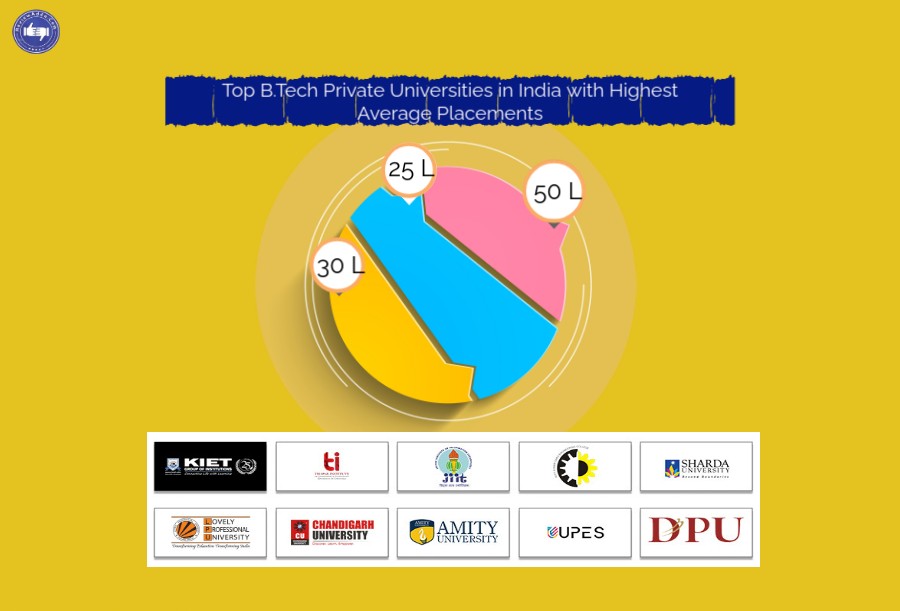Topic We Cover: What is B.A Economics all about?
- Economics: What is it About?
- Economics: Course Highlights
- Economics: Top Institutes
- Eligibility for B.A. Economics
- Economics Distance Learning Top Institutes
- Economics: Syllabus and Course Description
- What is the Scope of BA Economics?
- Economics Jobs & Salary
- Career Options after B.A. Economics
- Policymaking
- Economics and Its Related Disciplines
- Rural Development and Public Policy
- Management
- Consulting
- Development sector organizations
- An economist in a Corporate Sector Firm
- Allied areas
- Management Consulting
- Finance
- Actuarial science
- Indian Economic Services (IES)
- Law
- Higher Education Options After BA Economics
- Who is it suited for?
- Conclusion
What is B.A Economics all about? Colleges & Career Options
B.A. Economics: What is it About?
A 3- year long course of B.A. Economics is divided into 6 semesters, it is generally comprising qualitative and quantitative approaches to Social Science. The course essentially involves a study of the main aspects related to improving an organization’s overall profitability through different approaches and techniques.

BA Economics as a course that details each and every aspect of the finance and banking sector. Whether international or domestic, a BA Economics graduate will be able to analyse and give his/her professional opinion and suggestions on different economical aspects of an industry.
In the curriculum of B.A. Economics the principal subjects covered are
- Microeconomics
- Macroeconomics
- Political Economics, etc.
However, some universities follow the yearly pattern of examination. The B.A. Economics Course is designed to train pupils in processes of the economy and analyzing concepts by educating them in areas such as nature, definition, utility, scope, concepts, monopoly, production, market, etc.
Like many other courses, aspirants will go through various different subjects under BA Economics such as concepts of markets, principles of business and finance, micro and macro-economics, demand and supply, inflation and deflation of an economy, GDP, capital inflow and outflow, among other topics.
In India, the Educational Institutions have uniques designed the curriculum to ensure that the students are trained and qualified to tackle any and each economical situation with expertise. Therefore, the importance of such a degree is astronomical as the in-depth knowledge of an economist can either save a company/organisation or even the country from bankruptcy and huge debts.
B.A. Economics: Course Highlights
Some of the major highlights of the course are listed below.
|
Course Level |
Graduate |
|
Duration |
3 Years |
|
Examination Type |
Semester/ Annual system |
|
Eligibility |
12th or equivalent exam from a recognized Board |
|
Admission Process |
Entrance exam or direct admission |
|
Course Fee |
INR 2.5 to 3 Lacs |
|
Average Starting Salary |
INR 2.5 to 5 Lacs |
B.A. Economics: Top Institutes
The main and Prestigious Universities of Country, namely Jawaharlal Nehru University, University of Delhi, Calcutta University, and Mumbai University offer the course.
Some of the top institutes offering the course in the country along with the respective locations and fees charged by each are listed below:
|
COLLEGE NAME |
CITY |
AVERAGE FEES IN INR |
|
Jai Hind College |
Mumbai |
4,520 |
|
AIMS Institute |
Bangalore |
1.9 Lacs |
|
Shri Shikshayatan College |
Kolkata |
88,000 |
|
Christ University |
Bangalore |
1,00,000 |
|
St. Xavier’s College |
Ahmedabad |
1,820 |
|
Jadavpur University |
Kolkata |
2,750 |
|
Loyola College |
Chennai |
4,610 |
|
Pune |
17,400 |
|
|
IP College for Women |
Delhi |
24,600 |
|
Sacred Heart College |
Kerela |
4,000 |
Eligibility for B.A. Economics
For admission to the B.A. Economics Course the minimum criterion of eligibility required to be met is a 12th or equivalent qualification from a recognized institute/ university with a min. aggregate score of 50%. Candidates awaiting their final examinations’ results are also eligible to apply on provisional basis.
- Bachelor of Arts in Tamil Nadu
- Bachelor of Arts in Kerala
- Bachelor of Arts in Assam
- Bachelor of Arts in Madhya Pradesh
In India for the B.A. Economics Course the eligibility criteria and average course fee charged vary from institute to institute. The B.A. Economics course avg. fee ranges between INR 25,000 and 3 lacs.
B.A. Economics Distance Learning Top Institutes
Candidates that wish to pursue B.A. Economics degree while working, Distance Learning or Distance Education or correspondence course is for them. The duration of the course and the awarded degree is same as the Regular Course. In some institutes/universities the duration might be more.
As distance mode of learning top Institutes offering this course are:
|
Institute Name |
Location |
Average Fee (in INR) |
|
Jamia Millia Islamia |
Delhi |
7,000 |
|
Jamia Hamdard |
Delhi |
9,300 |
|
Delhi |
366 |
|
|
Nalanda Open University |
Patna |
2,400 |
|
Annamalai University |
Tamil Nadu |
2,200 |
|
DU school of open learning |
Delhi |
3,430 |
|
Bharathiar University School of Distance Education |
Tamil Nadu |
1,822 |
|
Madurai Kamaraj University Directorate of Distance Education (MKU-DDE) |
Madurai |
2,500 |
|
Andhra Pradesh |
2,735 |
B.A. Economics: Syllabus and Course Description
The course’s syllabus is given in a semester- wise breakup here.
Semester I |
Semester II |
|
Evolution and definition of Economics |
Economies of Scale |
|
Methods of Economics Analysis |
Marginal & Average Costs & their relationship |
|
Nature & Scope of Economics |
Accounting, Opportunity, Total fixed and Variable Costs |
|
Inductive & Deductive Logic, Merit and Demerits. |
Deferent Concepts of Costs Explicit & Implicit |
|
Utility Demand, Supply |
Concept of Revenue |
|
Market |
Total, Marginal & Average Revenue |
|
Value and Price |
Break Even Point |
|
Commodities and their types |
Concept and Classification |
|
Administered and Non- Administered Prices |
Perfect Competition Characteristics |
|
Demand- Supply equilibrium. |
Price and Output Determination for Firm and Industry |
|
Cardinal (Marshal) and Ordinal Utility |
Market Equilibrium |
|
Approaches to Demand |
Characteristics and Price- Output Determination |
|
Derivation of Demand Curve |
Price Discrimination |
|
Price, Income and Substitution effects |
Monopolistic Competition |
|
Indifference Curve: Consumer equilibrium (Hichs & Slutsky) |
Characteristics Price- Output Determination |
|
Elasticity of Demand |
Factor Pricing |
|
Factors of Production and their Characteristics |
Theory of Marginal Productivity of Distribution |
|
Consumer Surplus and its measurement. |
Concept of Adding up Theorem |
|
Price, Income and Cross elasticity |
Theories of Wages and Rent: Classical and Modern. |
|
Laws of Production |
Profit: Net and Gross |
|
Returns to Factor and Return to Scale |
Interest: Concept, Classical and Keynesian Theories of Interest |
|
Law of Variable Proportion |
Theories of Profit. |
|
Isoquants Nature and their Characteristics |
- |
|
Producers equilibrium |
- |
Semester III |
Semester IV |
|
Mineral Resources |
Infrastructure of Indian Economy |
|
Demographic Features |
Irrigation, Power, Transport, Communication |
|
Structure of Indian Economy - Primary, Secondary & Tertiary Sectors |
Banking and Insurance. |
|
Natural Resources, Land, Water, Forest |
Human Infrastructure of Indian Economy |
|
Recent National Population Policy |
Health, Nutrition, Education, Knowledge and Skills |
|
Population Distribution |
Housing and Sanitation. |
|
Population, Size, Sex, Rural-Urban Classification |
Planning in India- Objectives, Types, Strategy |
|
Cropping Pattern |
Analysis of Current Five- Year Plan. |
|
Land Use Pattern |
Economy- Land, land Utilization Pattern |
|
Land Reforms: Green Revolution |
Natural Resources- Forest, Water & Mineral |
|
Agriculture: Nature and Importance |
Agro-Climatic Zones |
|
Trends in Agriculture Production and Productivity |
Demographic Features of M.P. |
|
Rural Credit |
Agricultural Situation in Economy |
|
Small Scale and Cottage Industries- Meaning, Importance and Problems |
Cropping Pattern |
|
Mechanization |
Production and Productivity of Main Corps, |
|
Agricultural Marketing |
Sources of Credit in Agriculture, Irrigation |
|
Major Industries in India: Textile, Iron and Steel, Automobiles, Sugar, Cement |
- |
Semester V |
Semester VI |
|
Concept of National Income- GDP, GNP |
Public Finance and Public Economics |
|
Classical Theory of Employment |
Public, Private and Merits Goods |
|
Macro Variables- Stock and Flow |
Market and State- Role and Functions |
|
Circular Flow of income |
Principle of Maximum Social Advantage |
|
National Income and Economic Welfare |
Sources of Revenue- Taxes, Loans, Grants and Aids |
|
Measurement of National Income and Social Accounting in India |
Canons of Taxation |
|
Keynesian Theory of Employment |
Principles of Public Expenditure |
|
Aggregate Demand and Supply Functions |
Principles of Public Debt and Methods of Redaction |
|
Effective Demand |
Wagener’s Law- Increasing Activities |
|
Simple Investment |
Effects of Public Expenditure on Production and Distribution. |
|
Factors Affecting Consumption |
Public Finance in India |
|
Marginal Efficiency of Capital |
Concept and Types of Budget |
|
Consumption Function |
Fiscal Deficit |
|
Saving Function & Sources of Saving Mobilization |
Deficit Financing and Deficit Budget. |
|
Investment Function |
Constitution and Function of Finance Commission |
|
Average and Marginal propensities to consume |
Recommendation of Latest Finance Commission |
|
Factors Affecting Capital Formation |
Latest Budget |
|
Concept of Accelerator. |
The stock of Money and its Measures |
- |
Cash Transaction and Cash Balance Approaches. |
|
- |
Inflation, Deflation, and Recession |
|
- |
Demand-Pull and Cost-Push Inflation |
|
- |
Bank- Meaning and Types |
|
- |
Objectives and Limitations of Monetary Policy. |
What is the Scope of BA Economics?
While selecting the Undergraduate Course for yourself, the first question that each aspirant asks is the future scope of the course. BA Economics, as a course, entails a bright future with a sea of opportunities in terms of job profiles as well as further education. However, it is the skills gained by the student along with their ability to use their knowledge and skills gained in the professional world, for each and every graduate that will dictate the actual Scope of BA Economics.
For those aspiring to pursue BA Economics as their undergraduate course, you will be able to seek a career path ranging from a research assistant to a bank teller or economist. There are numerous options and with the correct skill, knowledge and experience, the pay package one can receive after graduating BA Economics can be highly lucrative.
 Get Updated Review ( Voice Based Alumni Feeback)
Get Updated Review ( Voice Based Alumni Feeback)
-
 Check Review (Alumni Feedback) - Lovely Professional University - [LPU] – Click Here
Check Review (Alumni Feedback) - Lovely Professional University - [LPU] – Click Here -
 Check Review (Alumni Feedback) - Amity University – Click Here
Check Review (Alumni Feedback) - Amity University – Click Here -
 Check Review (Alumni Feedback) - University of Petroleum and Energy Studies [UPES] – Click Here
Check Review (Alumni Feedback) - University of Petroleum and Energy Studies [UPES] – Click Here -
 Check Review (Alumni Feedback) - MMU Mullana – Click Here
Check Review (Alumni Feedback) - MMU Mullana – Click Here -
 Check Review (Alumni Feedback) -JECRC University Jaipur – Click Here
Check Review (Alumni Feedback) -JECRC University Jaipur – Click Here
B.A. Economics Jobs & Salary
For numerous types of careers B.A. Economics Degree is a great foundation apart from economic or finance field as well.
32% of female are employed in this sector and earn an average of INR 1,92,121 to 8,94,397, whereas 68% male work in economic or finance sector and their average salary range from INR 2,22,844 to 1,002,882.
Candidates with B.A. Economics degree have numerous employment opportunities in various enterprises.
Job Profiles
Some of the job profiles that B.A. Economics graduates work as are mentioned below
- Investment Analyst
- Investment Administrator
- Economist
- Economic Researcher
- Sales Analyst
- Financial Service Manager
- Securities Analyst Trainee
- Cost Estimator
- Customer Profit Analyst
- Fixed Income Portfolio Manager
- Foreign Trade Analyst
- Market Research Analyst
- Top Recruiting Companies
Some of the recruiting companies that hire B.A. Economics graduates are as follows:
- Accenture
- Capgemini
- Intelent Global Services
- IBM Group
- Wipro Technologies
Average Salary based on Companies for Bachelor of Arts [BA] (Economics):
|
Name of the Company |
Average Salary (p.a) |
|
Accenture |
Rs. 1000000/- |
|
The Indian Public School |
Rs. 250000/- |
|
HCL Services |
Rs. 175000/- |
|
Textual Analytics Solutions |
Rs. 150000/- |
|
Elite Academic Writing Centre |
Rs. 500000/- |
|
Idea International |
Rs. 275000/- |
|
Brainfuse |
Rs.1200000/- |
Employment Areas for Bachelor of Arts [BA] (Economics):
- Agricultural Companies
- Economic Research Institutions
- Analysis/Forecasting Firms
- Stock Exchanges
- Financial Information Firms
- Banks/Credit Unions
- International Trade Companies
- Manufacturing Firms
- Statistical Research Firms
|
Job Profile |
Job Description |
Average Salary (in INR) |
|
Human Resource Manager |
HR Manager is accountable to keep up organization staff by establishing a recruiting, testing, and interviewing program. By establishing and conducting orientation and training programs, HR managers prepares employees for assignments |
6,26,526 |
|
Executive Assistant |
Executive Assistants work with top-level executives in various industries. Executive assistant Job duties include organizing meetings, arranging travel, and training staff members. |
4,37,244 |
|
Operation Manager |
Operations Manager job duties involves manage the production of goods and/or provision of services. To meet the expectations and needs of customers and clients they make sure an organization is running with a smooth efficient services. |
6,95,597 |
|
Research Analyst |
Research Analyst’s job is to perform research and gather data to help a company market its products or services in an efficient way. They collect information and data using various methods, such as questionnaires, interviews, focus groups, public opinion polls, market analysis surveys, and literature reviews. |
4,16,640 |
|
Assistant HR |
Assistant HR substantiates applicants' skills by administering and scoring tests. They schedule examinations by coordinating appointments. By conducting orientation they welcomes new employees to the organization. |
5,18,762 |
|
Operations TL |
Operations Team Leader manages and trains the team of operations in an enterprise. They oversee the daily department production |
5,14,578 |
|
Project Manager |
Project Manager Job Duties is to plan, budget, oversee and document all aspects of the specific project. |
1,360,617 |
The job openings mentioned above are just some of the avenues available to a BA Economics Graduate in India. It is important to note that variation in the job profiles can be achieved is students pursue higher education in the same or different fields. Some of the higher education possibilities have been mentioned below. Moreover, the initial salary varies over different parameters including the skills and work experience of the graduate along with the degree obtained, among others.
Apart from these job profiles, there are numerous government job openings for BA Economics graduates, especially in Government Banks and the RBI. Here are some Career Options in the Government Sector one can look into after pursuing BA Economics:
- Civil Services
- Indian Statistical Services
- Government Banks
In India, people who are able to secure a seat in one of the Government-run organisations have Good Career Prospects as the remunerations offered to a government employee are impressive stable in the long-run.
Career Options after B.A. Economics
Policymaking
Since the essential and core skill of an economics graduate is her/his power to act to understand the economy completely, many students choose to Study Economics at the undergraduate and postgraduate levels in order to become successful researchers and policymakers. One may purpose to do this as a central banker, or as the state or country’s finance minister in future, or in other technical policymaking roles. Aside from being popularly elected, routes to active policymaking include becoming a technocrat (or technical bureaucrat), or academia in conjunction with active policy consultations.
Economics and Its Related Disciplines
Economics being a social science has its roots in a lot of humanistic themes, such as environment, agriculture, political science, etc., some of which you’ll also study as part of your course. As a result, in any of these interdisciplinary fields you can go on to specialize:
- Agricultural Economics
- Financial Economics
- Labour Economics
- Industrial Economics
- International Economics
- Business Economics
- Banking Economics
- Environmental Economics
- Developmental Economics
- Econometrics
Rural Development and Public Policy
The aim of this field is to improve the economic conditions of farmers and marginal groups by implementing changes in public policy. Indian economy study and its operations makes the graduate of economics well equipped to deal with such situations and makes it a Perfect Career Option.
Management
An Economics Degree in coupled with an MBA opens up doors in numerous domains of management, including public relations, sales, human resource management, marketing, operations, etc.
Consulting
A lot of consultancy firms hire graduates of economics as economic advisors to their firms. An economic advisor prepare reports, conducts research, and formulates plans to address problems of economic. Mostly problems are related to the production and distribution of services and goods, fiscal policy and monetary.
Development sector organisations
This sector of development organizations is closely connected with policymaking, but often in the form of its alter-ego. Development sector organisations often conduct research on policy options and incumbent, in fields like rural/urban development, poverty, agriculture, education, healthcare, economic policy, and international trade in order to present civil society and governments with credible policy alternatives. Again, this is a research-driven field, and expertise in econometric tools and statistical, which Economics graduates tend to have, provides an edge.
Economist in a Corporate Sector Firm
To conduct research on the macro business environment many corporate sector firms hire economists that they operate in, and help them better navigate policy changes and business cycles. Your work will involve conducting thorough research using statistical and econometric tools, and make recommendations based on your findings. If you opt this career, you may find yourself working for a large e-commerce firm, a bank, , or even a technology major such as Google.
Allied areas
In the Field of Core Economics not all economics graduates go on to carve careers. Many move to other areas like finance and management, and on account of the strong analytical base they are very successful to provided by a training in Economics.
Management Consulting
About analytical problem-solving management consulting is essential. All sectors organizations and industries, including the government, when come up against a situation with challenges that they are unable to address with the internal resources at their disposal, to offer an external reach out to consultants, professional and thoroughly researched view. As a result, across a range of industries a consultant is consistently involved in solving problems, by conducting in-depth analyses of the clients’ businesses and the market environment they operate in.
Finance
Since for Finance the basic skills required are taught on Economics UG Programmes, in Finance many Economics students go on to specialize. One may go on to a career in the financial services industry, including corporate banking, investment banking, private banking, and wealth / investment / asset management. Rather, one may specialize in corporate finance, investment projects, thereby revenue streams, and overall financial mgmt, and aim to become Chief Financial Officer someday.
The Economics curriculum of harnesses skills of financial intellect and understanding. If you feel Finance and Banking is your thing, then you can go on to pursue MBA in Finance and Banking or an M.A in finance or a Chartered Financial Analyst certification after graduating.
Actuarial science
Among Economics graduates actuarial science is a Fast-Emerging Career Option. Actuaries are basically experts at analysing uncertainty and risk, and also provisioning and pricing them. They have good domain information of statistics, mathematics, and finance, in addition to economics, and are prominently employed in the investment firms, insurance industry, and by pension funds, and actuarial consulting firms. To perform in this field with utmost proficiency the analytical and practical knowledge embedded by Economics will help you.
Indian Economic Services (IES)
Civil services Aspirants who are also blessed with an ability for Economics can target the IES. In this sector economists play a part in the creation and implementation of development policy and programmes, besides dealing with other areas such as regulation, economic reforms, monitoring, and price fixation.
Law
For suitable career in corporate law you need to know the combined knowledge of both Economics and Law, market research and public policy. You can go forward with a 3-year degree in Law after completing your Graduation in Economics.
Higher Education Options After BA Economics
All aspirants should note that pursuing a BA Economics Degree may not be the last option. One can always choose to pursue higher studies after completing their course, which will further enhance their career prospects in the long run. Recently in India, it has been noticed that many graduates tend to pursue higher studies in different fields such as management and law, etc. However, it is also better to pursue courses that add value to the UG degree you pursued previously, in order to enhance your career prospects. Here are some PG Courses to pursue after BA Economics:
- MA in Economics
- M.Sc in Economics
- M.Com
- MBA / PGDM
- LLB
- B.Ed
The last three options mentioned above are all possibilities one can look into after completing their UG course. While MBA or PGDM will allow a BA Economics graduate to enhance their Career Opportunities in Management and marketing fields, LLB will open up opportunities for becoming a Corporate Lawyer. These new fields and specialisations come with great remunerations and Career Growth Opportunities.
On the other hand, one can pursue B.Ed, which opens up opportunities in the field of teaching and professorship. This option is mainly for those who have a knack and an interest in teaching and further producing skilled and qualified professionals in the field. Higher Studies in Commerce and banking courses such as M.Com, MA Economics and M.Sc Economics will allow the students to try their hand at research, especially through Junior Research Fellowships.
Who is it suited for?
With such a wide range of options available after BA Economics, which are also highly lucrative, BA Economics may just be the course that you may have been looking for. If you have a knack for numbers and handling finances and subjects such as economic policies pique your interest, then you may be able to pursue a BA Economics course in India.
With the dynamic nature of the economy, fluctuating at any given moment and the varying reasons behind such fluctuations, to pursue economics as a career one have the mental capacity to handle the immense pressure and obstacles that come their way. Since you are part of the team that handles the financial stability of the company or department you are employed in, the task gets much riskier and fragile and should be carried out with utmost dedication and determination.
These were some of the Career Options and future prospects of BA Economics, which will allow you to analyse whether the course is suited for you. If you are interested in applying to the course, you can fill out the Common Application Form available on our website, in order to take admission to any one of the Top BA Economics Colleges in India.
Conclusion
B.A. Economics is a highly sought-after course for students after Class 12, and one that offers a plethora of opportunities in terms of career options and higher studies. It provides the student with pragmatic knowledge and the ability to solve complex problems. Some of the most renowned and successful personalities, in all spheres of life and industry, possess a background of Undergraduate Education in Economics. You could be one of them in a few years from now!





.jpg)
